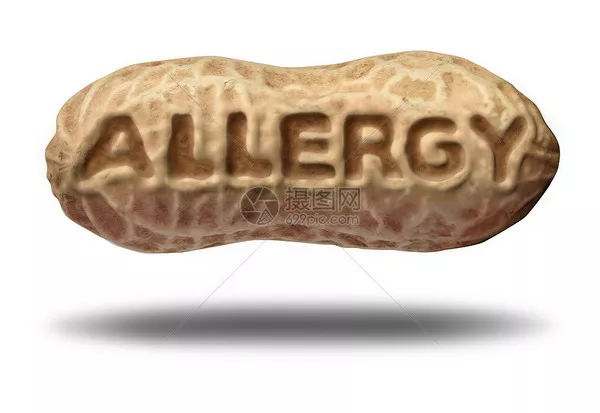Protein is often hailed as the cornerstone of muscle growth. Whether you’re a seasoned bodybuilder or someone just starting their fitness journey, understanding the role of protein in building muscle is crucial. In this comprehensive article, we will delve deep into the question that plagues many fitness enthusiasts: “How many grams of protein do I need to gain muscle effectively?” We will break down the science, debunk myths, and provide you with actionable insights to optimize your protein intake for muscle growth.
The Fundamentals of Protein for Muscle Growth
Before we dive into the specifics of protein intake, it’s essential to understand the fundamental role protein plays in the process of muscle growth. Proteins are the building blocks of our body. They consist of amino acids, which are the essential compounds responsible for repairing and building muscles. To put it simply, protein is the fuel your muscles need to grow and recover after workouts.
When you engage in resistance training or any form of exercise that stresses your muscles, small tears occur in the muscle fibers. These tears need to be repaired, and the body does this by utilizing amino acids from the protein you consume. Over time, with adequate protein intake and proper training, your muscles not only repair but also grow larger and stronger.
Protein: A Macronutrient with a Purpose
Protein is one of the three macronutrients, along with carbohydrates and fats. While carbohydrates provide energy and fats play various essential roles in the body, protein’s primary role is to support growth, repair, and maintenance of tissues, including muscle tissue. When it comes to muscle growth, protein stands out as the key macronutrient.
To ensure optimal muscle protein synthesis—the process by which your body builds new muscle proteins—you must provide your body with a consistent and adequate supply of dietary protein. This is where the question arises: how much protein do you need to fuel your muscle growth effectively?
Determining Your Protein Needs
There is no one-size-fits-all answer to the protein question. The amount of protein you need depends on several factors, including your age, gender, body weight, activity level, and fitness goals. Let’s break down these factors and see how they relate to your protein requirements.
Age and Protein Requirements
Age plays a role in determining your protein needs. As you age, your body’s ability to build and repair muscle naturally declines. This phenomenon, known as sarcopenia, makes protein intake increasingly important as you get older. Research suggests that older adults may need more protein to counteract muscle loss and maintain strength and functionality.
Gender and Protein Intake
Gender is another factor to consider when calculating your protein intake. Generally, men tend to have greater muscle mass than women due to hormonal differences. As a result, men often have slightly higher protein requirements than women. However, it’s essential to note that individual variations in muscle mass, activity level, and fitness goals can significantly impact protein needs, regardless of gender.
Body Weight and Protein
Your body weight is a critical factor in determining your protein requirements. A common guideline is to aim for a certain number of grams of protein per kilogram (kg) or pound (lb) of body weight. A typical recommendation for sedentary individuals is around 0.8 grams of protein per kilogram of body weight. However, for those actively engaged in strength training or intense physical activity, the protein requirements increase significantly.
Protein and Activity Level
The more active you are, the more protein your body needs. Engaging in regular resistance training or other forms of exercise places additional demands on your muscles. Protein helps repair and strengthen these muscles, making it essential for active individuals.
For those who engage in moderate exercise, such as light weightlifting or cardio workouts, a protein intake of 1.2 to 1.4 grams per kilogram of body weight is often recommended. However, for individuals involved in intense resistance training or bodybuilding, protein needs can range from 1.6 to 2.2 grams per kilogram of body weight or even higher in some cases.
Setting Clear Fitness Goals
Your fitness goals also play a pivotal role in determining your protein intake. If your primary objective is to gain muscle mass (commonly referred to as “bulking”), you will generally require more protein than someone with the goal of weight maintenance or fat loss. Protein is the key driver behind muscle hypertrophy (muscle growth), so it’s essential to align your protein intake with your specific goals.
The Role of Protein Timing
While the total daily protein intake is crucial, the timing of protein consumption can also influence muscle growth. Protein should be distributed throughout the day to ensure a continuous supply of amino acids for muscle repair and growth. Many experts recommend spreading protein intake across multiple meals and snacks to maximize muscle protein synthesis.
Pre-workout and post-workout nutrition is of particular importance. Consuming protein before a workout can provide your muscles with the necessary amino acids to fuel your training session. Post-workout, a protein-rich meal or shake can help kickstart the recovery process, minimizing muscle soreness and aiding in muscle protein synthesis.
Protein Quality Matters
Not all protein sources are created equal. The quality of protein you consume can impact its effectiveness in promoting muscle growth. Proteins from animal sources, such as meat, poultry, fish, and dairy, are considered high-quality proteins because they contain all essential amino acids in the right proportions.
Plant-based protein sources, such as beans, lentils, and tofu, can also support muscle growth, but they may require more careful planning to ensure you get all the essential amino acids. Combining different plant-based protein sources can help create a complete amino acid profile.
Protein Supplements: A Helping Hand
While it’s entirely possible to meet your protein needs through whole food sources, some individuals find it convenient to use protein supplements. Whey protein, casein protein, and plant-based protein powders are popular choices among fitness enthusiasts. These supplements can be especially handy when you struggle to meet your protein goals through regular meals.
However, it’s crucial to view protein supplements as just that—supplements. They should complement a well-balanced diet rather than replace whole food sources entirely. Whole foods provide a range of essential nutrients and dietary fiber that supplements cannot replicate.
Adjusting Your Protein Intake
Your protein needs are not set in stone; they can change over time based on various factors. As you progress in your fitness journey, you may need to adjust your protein intake to align with your evolving goals and lifestyle. Periodic evaluations of your protein intake and its impact on your muscle growth can help you make informed adjustments.
Potential Pitfalls and Myths
In the quest for muscle growth, misinformation can abound. Let’s address some common pitfalls and myths surrounding protein intake and muscle building:
Excessive Protein Intake: More isn’t always better when it comes to protein. Excessive protein intake can strain your kidneys and may not provide additional benefits for muscle growth beyond a certain point.
Timing Obsession: While meal timing is important, don’t get overly fixated on the anabolic window—the idea that you must consume protein within a short time frame after your workout. Your body can utilize protein effectively throughout the day.
Neglecting Other Nutrients: Protein is essential, but so are other nutrients like carbohydrates and fats. A balanced diet that includes a variety of nutrients is crucial for overall health and performance.
Ignoring Hydration: Proper hydration is often overlooked but is vital for muscle function and recovery. Ensure you’re drinking enough water throughout the day.
Protein and Weight Loss: Protein can help with weight loss by promoting satiety, but it’s not a magic bullet. A calorie deficit is still necessary for weight loss.
One-Size-Fits-All Recommendations: Individual variation is significant. What works for one person may not work for another. Tailor your protein intake to your unique needs and goals.
Putting Knowledge into Practice
Now that we’ve explored the intricate relationship between protein and muscle growth, it’s time to translate this knowledge into action. Here’s a step-by-step guide to help you determine your optimal protein intake and harness its power for muscle growth:
Assess Your Goals: Clearly define your fitness goals. Are you looking to gain muscle mass, maintain your current physique, or lose fat? Your goals will influence your protein needs.
Calculate Your Requirements: Use your body weight, activity level, and goals to calculate your daily protein requirements. Remember that these requirements can change as you progress.
Plan Your Meals: Create a meal plan that distributes protein intake evenly throughout the day. Include high-quality protein sources and complement them with a variety of nutrient-rich foods.
Stay Hydrated: Proper hydration is essential for muscle function. Aim to drink enough water to support your workouts and recovery.
Monitor Your Progress: Regularly assess your muscle growth, strength gains, and overall performance. If you’re not seeing the results you desire, consider adjusting your protein intake or workout routine.
Consult a Professional: If you have specific dietary restrictions, health concerns, or unique fitness goals, consider consulting a registered dietitian or fitness expert. They can provide personalized guidance to optimize your protein intake.
Conclusion
Protein is undeniably a vital component of the muscle-building process. Understanding how many grams of protein you need to gain muscle effectively is a crucial step in achieving your fitness goals. While there are general guidelines, individual factors such as age, gender, activity level, and goals must be considered when determining your protein intake.
Protein is not a one-size-fits-all solution, and it should be part of a well-rounded diet that includes a variety of nutrients. When combined with proper training and a balanced diet, the right amount of protein can be a powerful tool in your journey towards muscle growth and overall fitness.
So, as you embark on your quest for muscle gains, remember that protein is your ally, but it’s just one piece of the puzzle. Stay consistent, stay informed, and let protein fuel your path to a stronger, more muscular you.
[inline_related_posts title=”You Might Be Interested In” title_align=”left” style=”list” number=”6″ align=”none” ids=”735,2280,2305″ by=”categories” orderby=”rand” order=”DESC” hide_thumb=”no” thumb_right=”no” views=”no” date=”yes” grid_columns=”2″ post_type=”” tax=””]



































